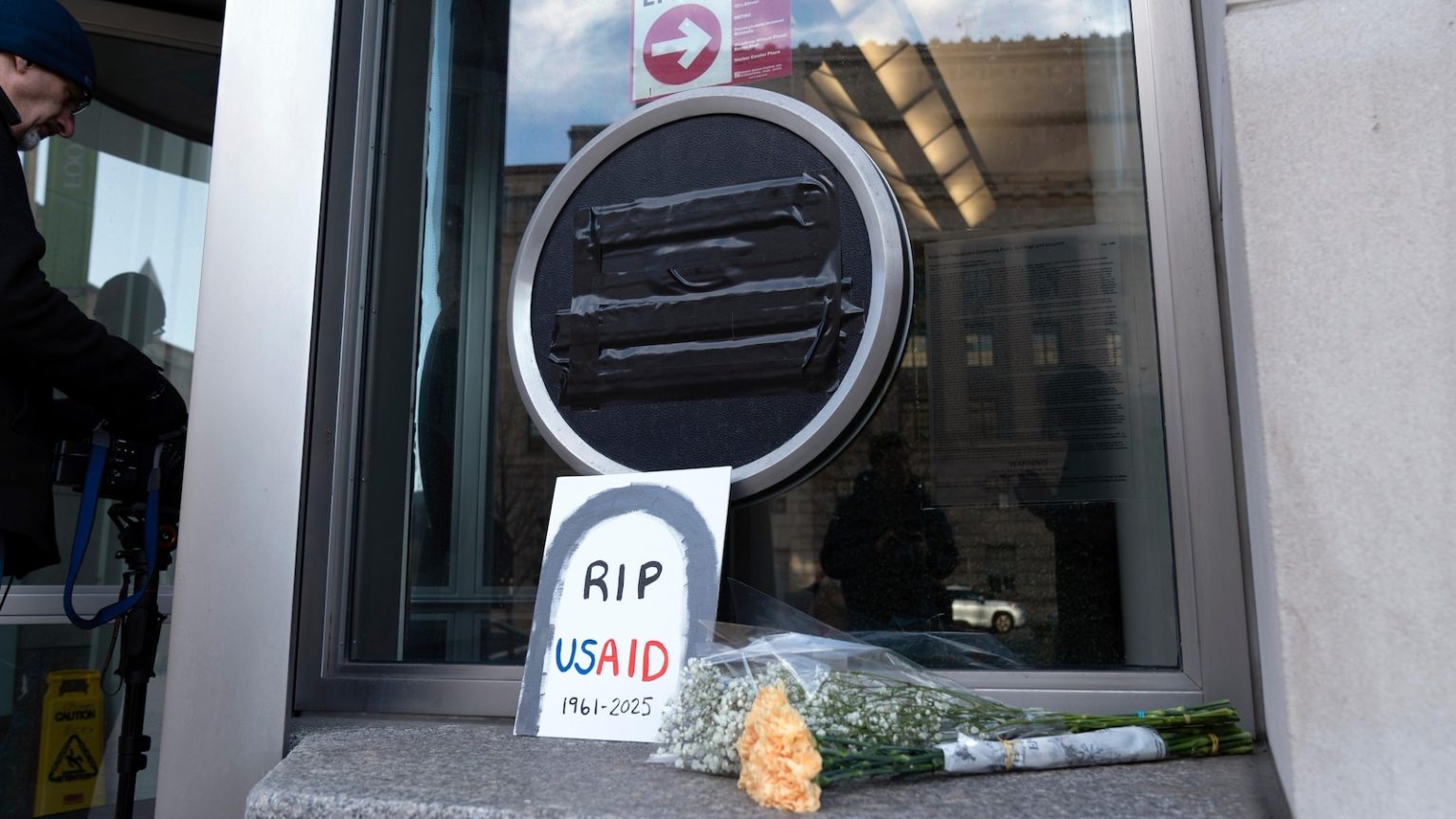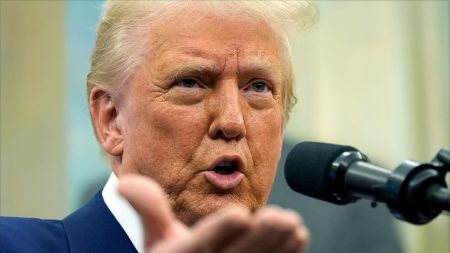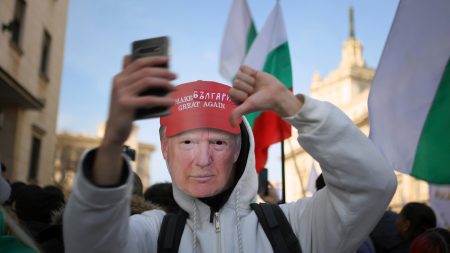The Trump Administration’s Dismantling of USAID and Its Far-Reaching Consequences
An Overview of the Crisis: Unpaid Bills and Shutting Down Global Aid
The Trump administration’s abrupt dismantling of the U.S. Agency for International Development (USAID) has sparked a major crisis, leaving American businesses with hundreds of millions of dollars in unpaid bills for work already completed. A recent lawsuit filed in U.S. District Court in Washington alleges that the administration’s freeze on foreign aid has not only halted critical global aid programs but also forced U.S. suppliers and contractors to lay off employees en masse. Among the hardest-hit companies is Chemonics International, a Washington-based firm, which has been forced to furlough 750 employees. The lawsuit, brought by a coalition of U.S. businesses and organizations, paints a dire picture of the consequences of these actions: hungry children worldwide going without food, populations facing deadly diseases without aid, and a severe blow to the constitutional order.
The lawsuit specifically names President Donald Trump, Secretary of State Marco Rubio, acting USAID Deputy Administrator Peter Marocco, and Russell Vought, Trump’s head of the Office of Management and Budget. It accuses the administration of unlawfully freezing foreign assistance and shutting down USAID programs without congressional approval. This move is part of a broader effort by Trump and his allies, including figures like Elon Musk, to dismantle USAID, claiming its work does not align with Trump’s agenda.
The Unfolding Lawsuit: A Fight for Fairness and Accountability
The lawsuit is the latest in a series of legal challenges against the Trump administration’s rapid unraveling of USAID and its global programs. It represents a diverse group of plaintiffs, including 170 small U.S. businesses, major suppliers, an American Jewish organization that aids displaced people abroad, and the American Bar Association. Together, these groups argue that the administration’s actions are not only harming businesses and employees but also undermining critical humanitarian efforts worldwide.
At the heart of the lawsuit is the allegation that the Trump administration terminated contracts without providing the legally required 30-day notice or paying for work that had already been completed. A U.S. official, a businessperson with a USAID contract, and an email obtained by The Associated Press confirm that the administration’s actions have left businesses struggling to survive. For Chemonics International alone, the unpaid invoices total $103 million, while nearly $500 million worth of critical supplies, including medication and food, are stalled in the supply chain or at ports.
The consequences of these delays are devastating. The lawsuit warns that the failure to deliver health commodities on time could result in as many as 566,000 deaths from HIV/AIDS, malaria, and unmet reproductive health needs, including 215,000 pediatric deaths. This stark reality underscores the human cost of the administration’s actions and the urgent need for intervention.
The Human Toll: Businesses, Employees, and Global Recipients
The impact of the Trump administration’s actions extends far beyond the financial losses for U.S. businesses. For companies like Chemonics International, the furlough of 750 employees represents a devastating blow to livelihoods and families. Small businesses, which often rely heavily on USAID contracts, are particularly vulnerable. Many have been forced to shutter their programs entirely, leaving their employees without income and their families without support.
The global recipients of USAID programs are equally affected. For decades, USAID has been a cornerstone of U.S. foreign assistance, providing critical aid to some of the world’s most vulnerable populations. From feeding hungry children to combating deadly diseases, USAID’s work has been instrumental in saving lives and fostering stability in crisis-ridden regions. The administration’s decision to freeze funding and shut down programs has left these populations in a state of peril, exacerbating hunger, disease, and despair.
The Administration’s Defense: A Controversial Stand
In response to the lawsuit, Peter Marocco, the acting USAID Deputy Administrator, has defended the administration’s actions in an affidavit. Marocco claims that "insubordination" and "noncompliance" by USAID staffers necessitated the funding cutoff and operational shutdown. He argues that this pause is necessary to conduct a program-by-program review, allowing the administration to determine which U.S. aid programs should resume overseas.
However, this defense has been met with skepticism by the plaintiffs and many in the international development community. Critics argue that the administration’s actions are not only unlawful but also counterproductive. They point out that USAID’s programs are mandated by Congress, and the executive branch does not have the authority to unilaterally halt funding or operations without legislative approval. Furthermore, the decision to freeze aid has been seen as part of a broader effort to dismantle USAID and reduce U.S. engagement on the global stage.
A Constitutional and Moral Crisis: The Broader Implications
The lawsuit highlights a constitutional crisis at the heart of the Trump administration’s actions. By freezing foreign aid and shutting down USAID programs without congressional approval, the administration is accused of overstepping its authority and violating the separation of powers enshrined in the U.S. Constitution. This is not just a legal or political issue but also a moral one, as the consequences of these actions are being felt by millions of people around the world who rely on U.S. aid for survival.
The crisis also raises questions about the future of U.S. global leadership and its commitment to humanitarian values. For decades, USAID has been a symbol of American generosity and a force for good in the world. Its dismantling sends a troubling message about the United States’ willingness to engage with global challenges and support vulnerable populations. As the lawsuit moves forward, it will not only determine the fate of USAID and its programs but also reflect the values and priorities of the nation.
In conclusion, the Trump administration’s dismantling of USAID has created a crisis with far-reaching consequences for businesses, employees, and global recipients of U.S. aid. The lawsuit brought by U.S. businesses and organizations seeks to hold the administration accountable for its actions and restore funding to critical programs. As the legal battle unfolds, it remains to be seen whether the administration’s efforts to dismantle USAID will prevail or whether the courts will intervene to protect the agency’s vital work. One thing is clear: the stakes could not be higher—for the people who depend on USAID’s aid, for the businesses that partner with the agency, and for the principles of fairness, accountability, and compassion that underpin U.S. foreign policy.















